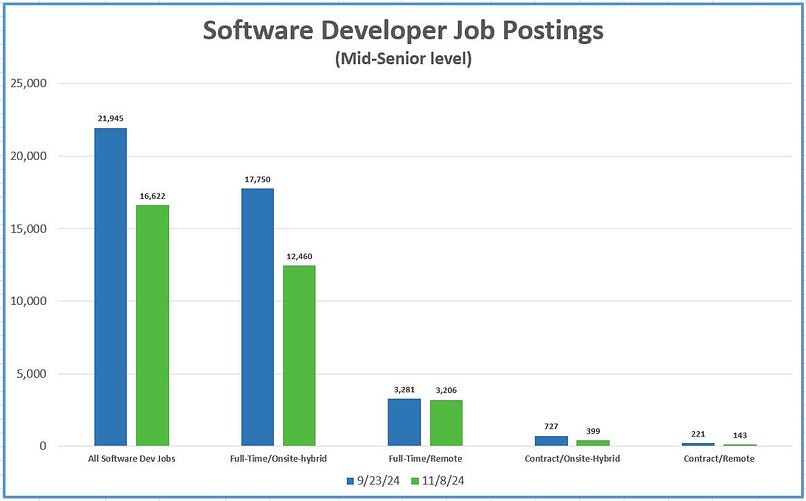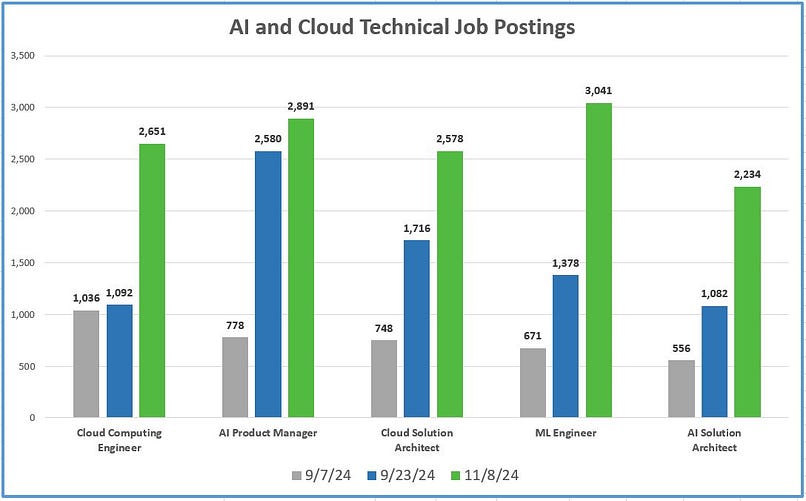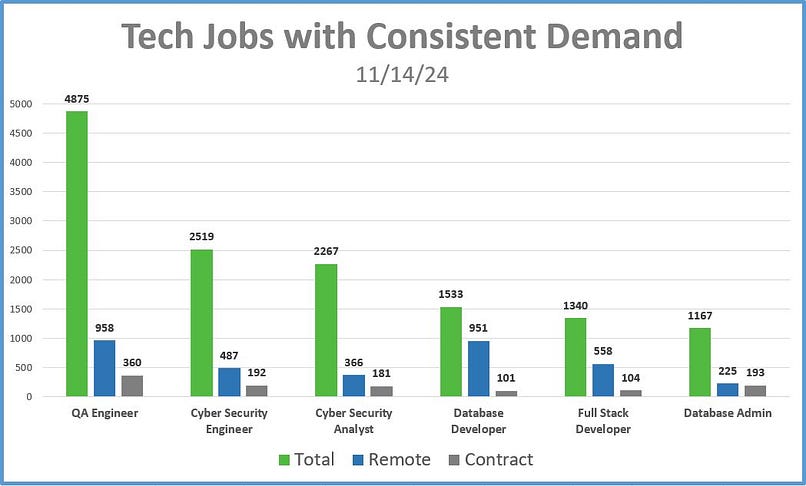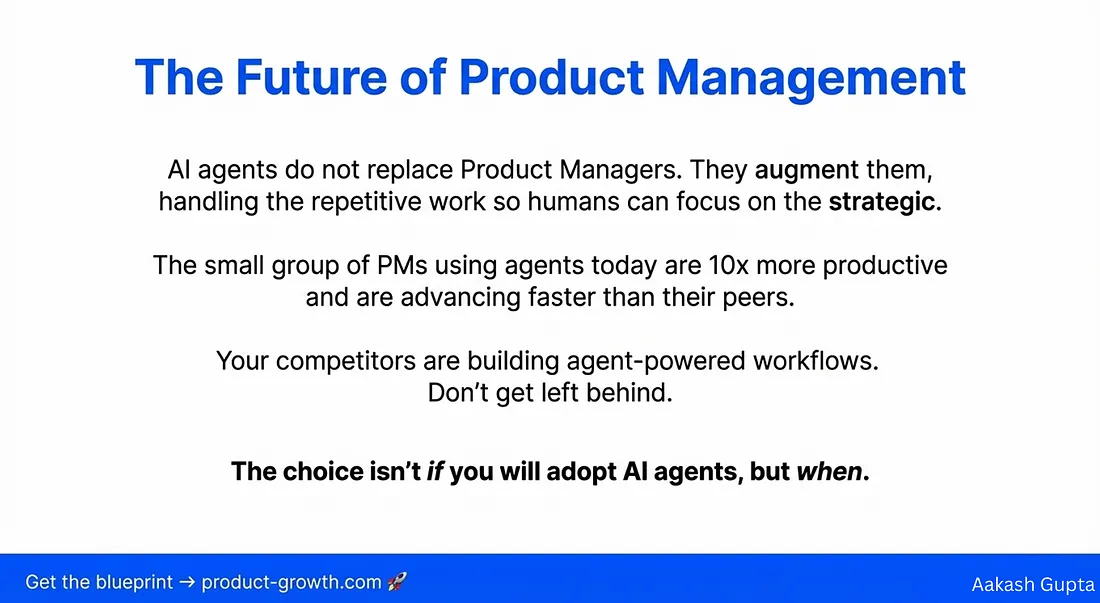
The Great Tech Job Migration is Upon Us
If you’ve been paying attention, you’ve seen AI shake up the tech world as it drives expansive shifts in the job market.
But before you pack up and hit the road, let’s take a deeper dive into how jobs are changing to point you in the right direction.
We’ve seen mass application-based software development jobs move toward more specialized engineering roles. But these new roles aren’t that different from the jobs they’re replacing.
No Big Surprise — “Software Developer” Jobs Are Down, Again
Following the trend of specialization, Software Development jobs continue to fall. Postings on LinkedIn fell almost 25% in October, shrinking from 22,000 to just under 17,000.

Total software development jobs are down, FTE onsite is down, FTE remote is steady, and contracts are down. (Graphic was created by the author)
At first glance, it looks like software development jobs are headed toward extinction as a new species of AI and AI-adjacent jobs takes their place.
But this isn’t the case. These jobs are just evolving into the next generation of software development work by adding new skills to new job titles.
AI, ML, and Cloud Computing Engineers — Just new names for “Software Developer”
As expected, the hottest jobs continue to be in the AI and Cloud Computing space as companies pair their capabilities.
Python, Java, and C++ are still core skills, but an added upskill to ML frameworks, cloud AI toolsets, and LLM models create new AI-centric development jobs… oops, I mean AI-centric engineering jobs.
AI Engineer postings rose sharply last month, increasing 55% from 10,000 to almost 16,000 from September.
The most notable change is a spike in demand for Cloud Computing Engineers and ML Engineers. Postings for these specialists more than doubled from late September, continuing sharp growth.

AI and Cloud skills demand continues to grow big time. (Graphic was created by the author)
Data Specialist Jobs are Also Growing as ML Enables Data Democratization
Machine learning is a key enabler of data democratization by making it easier for non-technical users to work with smart data.
With the push in ML automation, organizations are better equipped to implement data democratization as they push for data-driven decision-making.
We saw Data Analytics and Engineering jobs grow in October to over 8,000 jobs for Data Analysts, Data Engineers, and Data Scientists.
Of these, contract openings grew to about 9%, which is higher than any other segment in my analysis.
Is Old Reliable Still Reliable?
Technical areas with consistent demand continue to be SQA, Cybersecurity, Database, and Full Stack Development.

Cybersecurity continues to burn bright, showing no signs of slowing anytime soon.
Software Quality Assurance is staying strong, but demand continues to shift toward testing automation as ML and AI replace lower-level testing functions.
I suspect many Full Stack Development jobs will be augmented with the new skills mentioned earlier as demand for AI and Cloud enabled applications grows.
As for Database roles, I’m a little unsure how AI expansion will affect demand and will continue to track and bring new insights to my Tech Job Watch articles.
Blockchain is a Strange Little Creature
I can’t wrap up November’s report without mentioning the fintech space and its push to decentralize lending and trading. This is driving high demand for blockchain expertise.

If you don’t know where this little guy lives, it’s hard to chase him down. (Graphic created with DALL-E)
When looking at Blockchain Engineer postings in my trusty job databanks, demand appears to be squirrely and erratic. The number of postings fluctuates significantly day-to-day with no clear pattern.
To add to this, over half are posted by third party recruiting firms. Typically, this indicates an uptick in capital investment projects as companies leverage outside recruiters to fill contract positions. But this wasn’t the case in October, where 95% of these postings were FTE positions.
Digging in further, I found that many postings on the big job search platforms are merely echoes of openings posted on boutique “Web3 club” job sites.
This, among other idiosyncrasies, are seen across the blockchain job market when attempting to track job trends.
So, what is going on?
Simply put, the Web3 job market is decentralized, mimicking the blockchain technology. These jobs are recruited in the same decentralized way.
The Web3 job sites make up a network of DeFi communities and can be tricky to find for the crypto layperson (me), but these sites offer great job opportunities for developers with blockchain skills.
I could go on and on about this strange animal, but there’s too much to unpack here. I’ll dive in further in upcoming Tech Job Watch articles.
Tech Jobs are Adapting to the New Climate
The relentless shift toward AI demands adaptability, and only those who evolve will survive in this new tech job climate.
As the tech job market undergoes its great migration, we’re seeing most new roles are adopting new skills added to new job titles.
So, when looking for your next great career opportunity, search for jobs that still rely on your core experience but have some new skills mixed in.
You’ll surely find your next job under a new specialized title. The best part? You’ll find it with a nice new “upskilled” salary.









Comments ...
No Comments Yet ...Add One